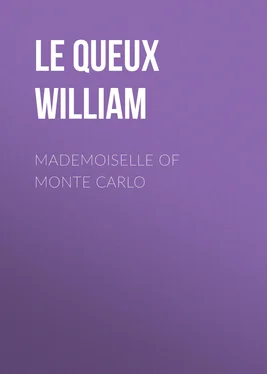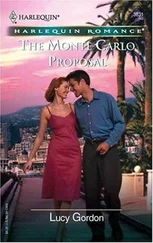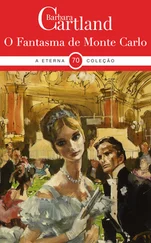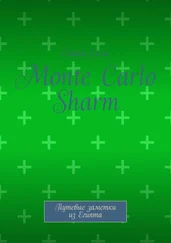William Le Queux - Mademoiselle of Monte Carlo
Здесь есть возможность читать онлайн «William Le Queux - Mademoiselle of Monte Carlo» — ознакомительный отрывок электронной книги совершенно бесплатно, а после прочтения отрывка купить полную версию. В некоторых случаях можно слушать аудио, скачать через торрент в формате fb2 и присутствует краткое содержание. Жанр: foreign_prose, Классический детектив, foreign_detective, foreign_antique, на английском языке. Описание произведения, (предисловие) а так же отзывы посетителей доступны на портале библиотеки ЛибКат.
- Название:Mademoiselle of Monte Carlo
- Автор:
- Жанр:
- Год:неизвестен
- ISBN:нет данных
- Рейтинг книги:5 / 5. Голосов: 1
-
Избранное:Добавить в избранное
- Отзывы:
-
Ваша оценка:
- 100
- 1
- 2
- 3
- 4
- 5
Mademoiselle of Monte Carlo: краткое содержание, описание и аннотация
Предлагаем к чтению аннотацию, описание, краткое содержание или предисловие (зависит от того, что написал сам автор книги «Mademoiselle of Monte Carlo»). Если вы не нашли необходимую информацию о книге — напишите в комментариях, мы постараемся отыскать её.
Mademoiselle of Monte Carlo — читать онлайн ознакомительный отрывок
Ниже представлен текст книги, разбитый по страницам. Система сохранения места последней прочитанной страницы, позволяет с удобством читать онлайн бесплатно книгу «Mademoiselle of Monte Carlo», без необходимости каждый раз заново искать на чём Вы остановились. Поставьте закладку, и сможете в любой момент перейти на страницу, на которой закончили чтение.
Интервал:
Закладка:
“Yes,” said the police officer; “they had better take her upstairs. We will remain here and make inquiries. This is a very queer affair—to say the least,” he added, glancing suspiciously at Henfrey.
While the servants carried their unconscious mistress tenderly upstairs, the fussy little doctor went to the telephone to call Doctor Duponteil, the principal surgeon of Monaco. He had hesitated whether to take the victim to the hospital, but had decided that the operation could be done just as effectively upstairs. So, after speaking to Duponteil, he also spoke to the sister at the hospital, asking her to send up two nurses immediately to the Villa Amette.
In the meantime Inspector Ogier was closely questioning the young Englishman.
Like everyone in Monte Carlo he knew the mysterious Mademoiselle by sight. More than once the suspicions of the police had been aroused against her. Indeed, in the archives of the Prefecture there reposed a bulky dossier containing reports of her doings and those of her friends. Yet there had never been anything which would warrant the authorities to forbid her from remaining in the Principality.
This tragedy, therefore, greatly interested Ogier and his colleague. Both of them had spent many years in the service of the Paris Surete under the great Goron before being appointed to the responsible positions in the detective service of Monaco.
“Then you knew the lady?” Ogier asked of the young man who was naturally much upset over the startling affair, and the more so because the secret of his father’s mysterious death had been filched from him by the hand of some unknown assassin.
“No, I did not know her personally,” Henfrey replied somewhat lamely. “I came to call upon her, and she received me.”
“Why did you call at this hour? Could you not have called in the daytime?”
“Mademoiselle was in the Rooms until late,” he said.
“Ah! Then you followed her home—eh?”
“Yes,” he admitted.
The police officer pursed his lips and raised his eyes significantly at his colleague.
“And what was actually happening when the shot was fired? Describe it to me, please,” he demanded.
“I was standing just here”—and he crossed the room and stood upon the spot where he had been—“Mademoiselle was over there beside the window. I had my back to the window. She was about to tell me something—to answer a question I had put to her—when someone from outside shot her through the open glass door.”
“And you did not see her assailant?”
“I saw nothing. The shot startled me, and, seeing her staggering, I rushed to her. In the meantime the assailant—whoever he was—disappeared!”
The brown-bearded man smiled dubiously. As he stood beneath the electric light Hugh saw doubt written largely upon his countenance. He instantly realized that Ogier disbelieved his story.
After all it was a very lame one. He would not fully admit the reason of his visit.
“But tell me, m’sieur,” exclaimed the police officer. “It seems extraordinary that any person should creep along this veranda.” And he walked out and looked about in the moonlight. “If the culprit wished to shoot Mademoiselle in secret, then he would surely not have done so in your presence. He might easily have shot her as she was on her way home. The road is lonely up here.”
“I agree, monsieur,” replied the Englishman. “The whole affair is, to me, a complete mystery. I saw nobody. But it was plain to me that when I called Mademoiselle was seated out upon the veranda. Look at her chair—and the cushions! It was very hot and close in the Rooms to-night, and probably she was enjoying the moonlight before retiring to bed.”
“Quite possibly,” he agreed. “But that does not alter the fact that the assassin ran considerable risk in coming along the veranda in the full moonlight and firing through the open door. Are you quite certain that Mademoiselle’s assailant was outside—and not inside?” he asked, with a queer expression upon his aquiline face.
Hugh saw that he was hinting at his suspicion that he himself had shot her!
“Quite certain,” he assured him. “Why do you ask?”
“I have my own reasons,” replied the police officer with a hard laugh. “Now, tell me what do you know about Mademoiselle Ferad?”
“Practically nothing.”
“Then why did you call upon her?”
“I have told you. I desired some information, and she was about to give it to me when the weapon was fired by an unknown hand.”
“Unknown—eh?”
“Yes. Unknown to me. It might be known to Mademoiselle.”
“And what was this information you so urgently desired?”
“Some important information. I travelled from London to Monte Carlo in order to obtain it.”
“Ah! Then you had a motive in coming here—some strong motive, I take it?”
“Yes. A very strong motive. I wanted her to clear up certain mysterious happenings in England.”
Ogier was instantly alert.
“What happenings?” he asked, for he recollected the big dossier and the suspicions extending over four or five years concerning the real identity and mode of life of the handsome, sphinx-like woman Yvonne Ferad.
Hugh Henfrey was silent for a few moments. Then he said:
“Happenings in London that—well, that I do not wish to recall.”
Ogier again looked him straight in the face.
“I suggest, M’sieur Henfrey”—for Hugh had given him his name—“I suggest that you have been attracted by Mademoiselle as so many other men have been. She seems to exercise a fatal influence upon some people.”
“I know,” Hugh said. “I have heard lots of things about her. Her success at the tables is constant and uncanny. Even the Administration are interested in her winnings, and are often filled with wonder.”
“True, m’sieur. She keeps herself apart. She is a mysterious person—the most remarkable in all the Principality. We, at the Bureau, have heard all sorts of curious stories concerning her—once it was rumoured that she was the daughter of a reigning European sovereign. Then we take all the reports with the proverbial grain of salt. That Mademoiselle is a woman of outstanding intellect and courage, as well as of great beauty, cannot be denied. Therefore I tell you that I am intensely interested in this attempt upon her life.”
“And so am I,” Hugh said. “I have a strong reason to be.”
“Cannot you tell me that reason?” inquired the officer of the Surete, still looking at him very shrewdly. “Why fence with me?”
Henfrey hesitated. Then he replied:
“It is a purely personal matter.”
“And yet, you have said that you were not acquainted with Mademoiselle!” remarked Ogier suspiciously.
“That is quite true. The first time I have spoken to her was this evening, a few minutes before the attempt was made upon her life.”
“Then your theory is that while you stood in conversation with her somebody crept along the veranda and shot her—eh?”
“Yes.”
Ogier smiled sarcastically, and turning to his colleague, ordered him to search the room. The inspector evidently suspected the young Englishman of having shot Mademoiselle, and the search was in order to try and discover the weapon.
Meanwhile the brown-bearded officer called the Italian manservant, who gave his name as Giulio Cataldi, and who stated that he had been in Mademoiselle Ferad’s service a little over five years.
“Have you ever seen this Englishman before?” Ogier asked, indicating Hugh.
“Never, until to-night, m’sieur,” was the reply. “He called about twenty minutes after Mademoiselle’s return from the Rooms.”
“Has Mademoiselle quarrelled with anybody of late?”
“Not to my knowledge, m’sieur. She is of a very quiet and even disposition.”
Читать дальшеИнтервал:
Закладка:
Похожие книги на «Mademoiselle of Monte Carlo»
Представляем Вашему вниманию похожие книги на «Mademoiselle of Monte Carlo» списком для выбора. Мы отобрали схожую по названию и смыслу литературу в надежде предоставить читателям больше вариантов отыскать новые, интересные, ещё непрочитанные произведения.
Обсуждение, отзывы о книге «Mademoiselle of Monte Carlo» и просто собственные мнения читателей. Оставьте ваши комментарии, напишите, что Вы думаете о произведении, его смысле или главных героях. Укажите что конкретно понравилось, а что нет, и почему Вы так считаете.












